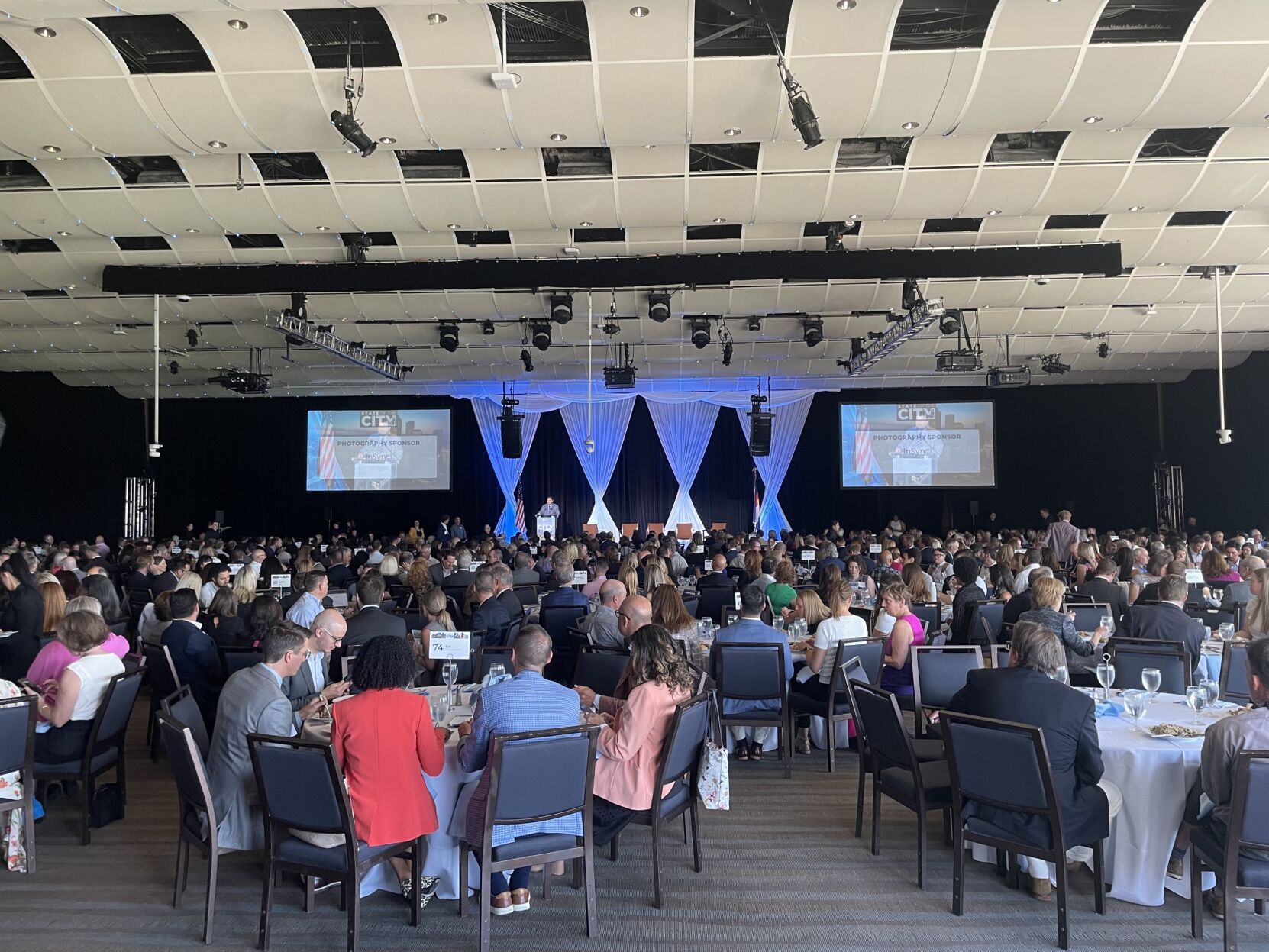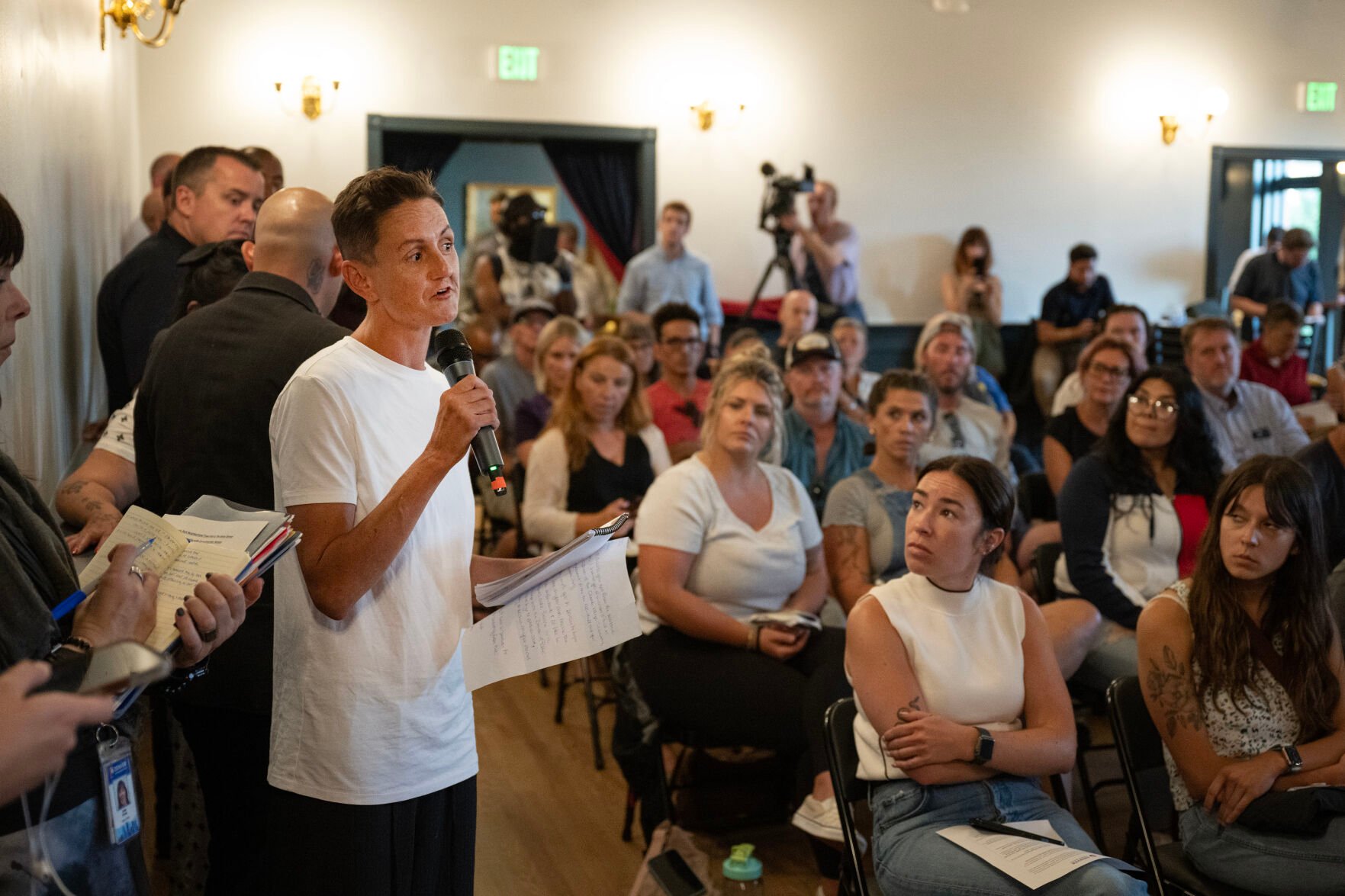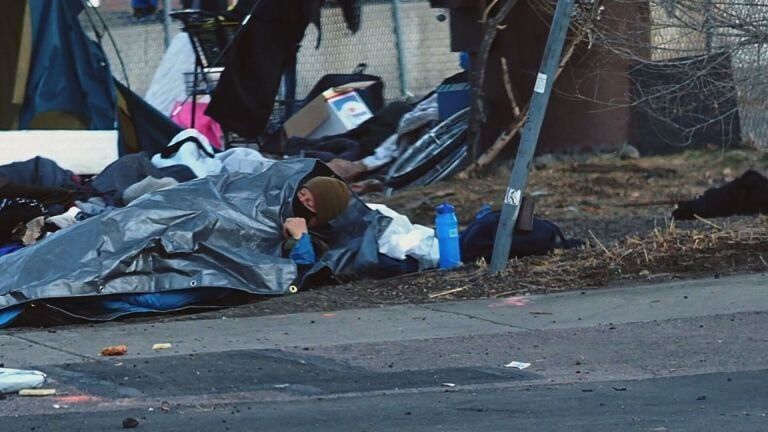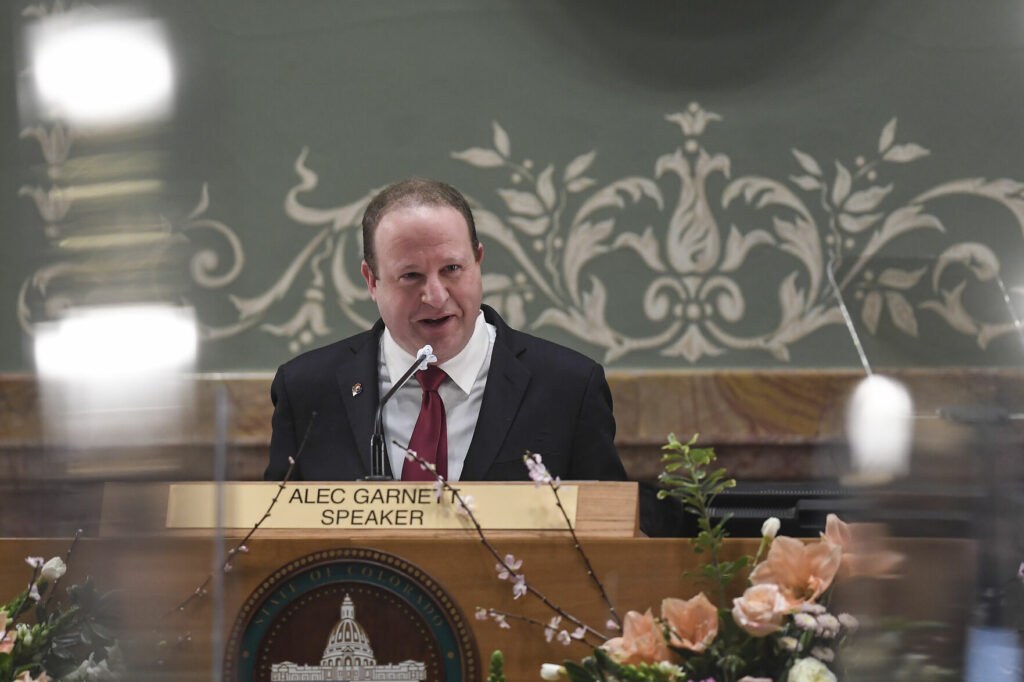Solving homelessness, housing crisis in Colorado: Local mayors talk possible solutions

Multiple issues at a crisis point. Four mayors from the Front Range. Cities in search of collaborative solutions.
The Denver Metro Chamber of Commerce hosted its 2023 State of the City event on Thursday, convening a panel that consisted of Boulder Mayor Aaron Brockett, Aurora Mayor Mike Coffman, Denver Mayor Mike Johnston and Colorado Springs Mayor Yemi Mobolade.
The mayors – leaders from two of Colorado’s largest cities; two new, two running for reelection; all with different political views – weighed in on some of the region’s most pressing issues.
Affordability, homelessness and sustainability became focal points throughout the event, and the panel unfolded without “finger pointing” and with signs of future collaboration, chamber President and CEO J.J. Ament said.
“I thought it was interesting that, as different as these communities are and as diverse as these mayors are, you heard a lot of common themes, a lot of common issues,” Ament said.
Affordability
The mayors were asked to discuss Colorado’s construction defect litigation law, its effect on the affordability crisis in the region’s housing market and how they plan to address the challenge.
The City of Aurora has taken the position that it wants reform “and we want relief,” Coffman said on the construction defect law, which he blames as causing a gaping hole in the condo market. The city also signed up for Proposition 123, he said, showing its dedication to increasing affordable housing. The city needs more than 7,000 additional units of affordable housing, he said.
Approved by the public in 2022, Proposition 123 set aside $300 million out of TABOR surplus revenues for new grant and loan programs for local governments and nonprofits. In order to access the money, local governments must commit to increasing their number of affordable housing units.
Colorado Springs, meanwhile, is committed to adding 800 homes a year, Mobolade said. To help reach that goal, the new mayor appointed a chief housing officer and community vitality officer with direct access to him as mayor in order to foster more project partnerships, he said.
The city, which also opted into Proposition 123, lacks housing that is attainable for people making between $50,000 and $100,000 because of the construction defect policy, Mobolade said, which is why he is looking toward funding to help the “missing middle.” That funding should also be used to spur innovation, he said, calling for new approaches to building.
“The way we’ve been building homes up to this point, the last 80 years, is relatively the same,” he said, emphasizing his interest in modular homes and 3D printing of materials as another way to reduce the cost of building starter homes.
Mobolade urged government leaders to think of new ways to educate the public as cities strive to curb NIMBYism, the “not in my backyard” mentality that often drives opposition to new housing.
“These are real people that are affected by our lack of housing, and it has great consequences and cost to our cities if we do not solve it,” he said to applause.
In Boulder, there are next to no condos being built, Brockett said.
The mayor recounted a conversation he held recently with a local neurologist, who said they could not afford a $2 million property and could not find a condo for sale.
“We’re past the point where teachers can’t afford to live in town, neurologists can’t even afford to buy a house or a condo in town. It shows the depth of the crisis,” Brockett said.
Brockett also advocated for innovation. As one strategy, he said, Boulder is constructing a modular home factory in partnership with the local school district. Flatirons Habitat for Humanity will operate the factory, which will also provide technical education for high school students and build affordable housing for area residents.
“It’s that kind of innovative partnership that’s going to allow us to make a dent in these extremely difficult problems,” he said.
Johnston drew praise from the audience for saying the city’s permitting process is so cumbersome to navigate it is driving up the cost of housing “astronomically.” The city needs to expedite the permitting process, he said, adding that Proposition 123, for example, calls for a 90-day permitting process.
“That also means that we have incentives and urgency around construction rather than incentives and urgency around delays,” he said.
He supports pursuing legislative changes that will make way for condos, but Johnston is eager to find entrepreneurial solutions as well, he said. He is interested in creating a fund that will help developers manage the costs of insurance that came as a result of the construction defect policy, he said.
Homelessness
Johnston reiterated much of his homelessness plan, highlighting his “housing first” strategy and recent goal of getting 1,000 people off Denver’s streets and into supportive housing before the year’s end.
Johnston’s administration is targeting four types of housing to accomplish that goal, with a priority on finding units that offer privacy and security for people, alongside “wraparound” support services.
“Housing first” programs seek to provide people with permanent housing, along with individualized social services. In contrast, alternative approaches, such as “treatment first” or “work first” models, typically require some people to access treatment or be working – or at least to keep trying to find a job or receive job skills training – in order to receive housing beyond emergency shelter.
People are leery of shelters because of concerns about their safety and health, the Denver mayor said. If they are offered a unit with a lock and an address, between 80% and 90% would accept it, he said.
That remaining 10% to 20% of people likely have acute behavioral health needs, and providing them with a system of mental health and addiction treatment will require a regional approach, Johnston said.
Coffman called homelessness “a very difficult challenge,” saying his city’s outreach teams have difficulty finding people interested in Aurora’s pallet shelters. “It’s going to take a more aggressive approach on our side in terms of trespassing,” he said, while calling for growth in access to treatment and housing.
“It may take some tough love to get them off the streets and we have to be prepared to do that,” Coffman said.
Aurora has taken a “treatment-first” approach to homelessness, Coffman told the room, also saying that he views homelessness as a crisis of mental health and substance use disorders, as well as a symptom of the region’s affordability crisis.
“We are going to be more aggressive about getting people off the street, but in a commensurate way, we will be more aggressive about getting those people into treatment,” he said.
Sustainability
Electrification and water dominated mayors’ responses to questions about sustainability programs that could be expanded in the region.
Johnston wants to expand Denver’s e-bike program, the demand for which has outpaced demand for Taylor Swift tickets, he joked. Denver is also working on electrifying the city’s fleet of vehicles and buildings. Brockett concurred.
“As the grid is getting greener and greener and more renewables are coming online, the next phase for reducing our greenhouse gas emissions is to electrify everything,” Brockett said.
That is a decades-long process, he said, “So, it is something that we need to get working on sooner rather than later.” Brockett commended the state for pursuing electrification initiatives and said cities should jump on those opportunities to encourage citizens to electrify their vehicles and homes.
Advocates of electrification argue that it’s necessary to wean Colorado off fossil-fired energy, while critics say the pace is too quick, too soon, with serious consequences for energy rates and potentially pricing out fixed-income and low-income residents.
Coffman emphasized Aurora’s water conservation efforts and its ban on cool-weather turf, among new developments. The water ordinance drives higher density, which leads to more affordability and more efficient energy and water use, he said. The city also recycles water.
Mobolade echoed Coffman’s emphasis on water conservation. Colorado Springs has “an extensive plan” outlining future development plans and requirements regarding the use of native plants, small lot sizes, water conservation and density, he said.
“The reason why this is really important is this is where sustainability efforts meet the future growth of our city. Those two are interconnected,” he said.
Chamber takeaways
Despite the cities pursuing different models to end homelessness, Ament is optimistic they will collaborate to tackle the challenge.
“I think they all acknowledge, as Mayor Johnston said, if all we do is move you, a homeless person, from one community to another community, we really haven’t solved anybody’s problem,” he said.
Cities, such as Denver and Aurora and Boulder, might take an approach unique from their neighbor’s, Ament said, “but let’s them move together in that path.”
As for permitting, Ament is “really encouraged that (Johnston) acknowledged that it just takes too long to get through the bureaucracy before we can deliver to market any kind of product.”
Ament hopes Denver makes good on the 90-day permitting goal.
Condos used to make up a third of the market, and now he estimates that number sits at 5%, “and only the wealthy can afford them.” Nearly every mayor spoke about the need for construction litigation reform, he said.
“I also was very encouraged to hear them all talk about the fact that construction litigation is still preventing us from delivering the kind of housing in an attainable way that we need for our schoolteachers, for our firefighters, for our nurses,” he said.










